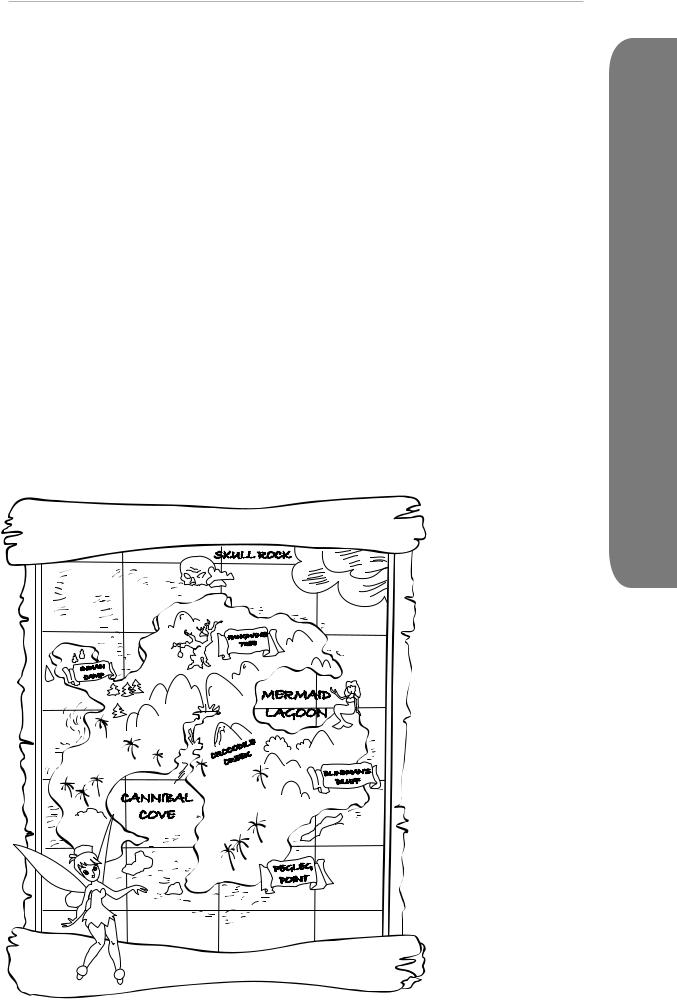
yastrebova_Part_1
.pdf
 Английский язык для международников и регионоведов. Часть I
Английский язык для международников и регионоведов. Часть I
Ex. 5. For each noun given below fi nd at least four words from the box that can go with it. Some words from the box can go into several groups. Can you continue the lists? Use the expressions in sentences of your own.
a recipe for |
big |
gradual |
of the empire |
weak |
to observe |
according to |
dramatic |
joint |
on smb’s life |
to form |
to spare no |
to lead to |
economic |
little |
political |
to have |
to create |
at the first |
fruitless |
local |
the key to |
age-long |
|
|
|
|
|
|
|
union |
|
effort |
|
decline |
|
_______ |
|
_______ |
|
_______ |
|
_______ |
|
_______ |
|
_______ |
|
_______ |
|
_______ |
|
_______ |
|
_______ |
|
_______ |
|
_______ |
|
|
custom |
|
success |
|
attempt |
|
_______ |
|
_______ |
|
_______ |
|
_______ |
|
_______ |
|
_______ |
|
_______ |
|
_______ |
|
_______ |
|
_______ |
|
_______ |
|
_______ |
Ex. 6. Odd one out. Find in each set one word that does not go with the main one.
SUCCESSFUL: film, lawyer, business, escape, stretch
UNITED: party, nation, unity, family, effort
SEPARATE: file, decline, page, category, rooms
DECLINING: economy, signature, number of…, birth rate, health
INSEPARABLE: part, aspect, friends, stretch, feature
Ex. 7. Short story contest.
Make up a short story (10–12 sentences) with the Active Vocabulary words and present it in class. Don’t read when making your presentation. Choose the best story using the following criteria:
1.interest of the plot;
2.use of the Active Vocabulary (the number of words and their acceptability)
3.grammatically correct sentences.
Ex. 8. Answer the following questions using the Active Vocabulary.
1.Can you name an unsuccessful candidate in the most recent election?
2.Do you agree that our educational system has fallen into decline?
3.How far back into your childhood do your memories stretch?
4.Are there any customs you find strange?
5.Why do you think the birth rate is on the decline in this country?
6.In what countries are there ethnic groups / regions that want to go their separate way?
7.Can you give any tips on how to succeed in exam taking?
8.Have you ever done anything into which you put ‘superhuman’ effort?
9.What arrangements do people customarily make in this country before they get married?
10.Have you ever attempted a dangerous sport?
Chapter 1. Unit 1. Across the English Speaking World
31

Chapter 1. Unit 1. Across the English Speaking World
 Английский язык для международников и регионоведов. Часть I
Английский язык для международников и регионоведов. Часть I
DESCRIBING THE GEOGRAPHICAL LOCATION
Ex. 9. a) Read and translate the passage paying special attention to the prepositions and adverbs.
b) Look at the map of Great Britain (in Supplement) and fi nd these places on the map.
The United Kingdom is a wonderful land with diverse scenery. Owing to its geographical position, the country has everything from sandy beaches on the southern coast to dramatic mountains in the North. The United Kingdom is located off the northwestern coast of Europe between the Atlantic Ocean and the North Sea. It is separated from the continent by the Strait of Dover and the English Channel, and from the Irish Republic by the Irish Sea and the St George’s Channel; on land the UK borders on Ireland alone.
The capital and the largest city, London, is in the southeast, on the River Thames, England’s longest river. Besides Great Britain, the biggest island, which is about 1,000 miles long from north to south, the United Kingdom contains a number of small islands. These include the Isle of Wight, which lies off England’s southern coast; Anglesey, off the northwestern coast of Wales; the Hebrides archipelago to the west of Scotland, consisting of the Inner and the Outer Hebrides, and others.
Remember: |
in the north = на севере |
|
to the north (of) = к северу (от) |
|
north of = к северу (от) |
c) Find in the text the English equivalents of the following word combinations:
у южного побережья Англии |
на юго-востоке |
географическое положение |
на южном побережье |
граничить с … |
с севера на юг |
к западу от Шотландии |
у северо-западного побережья |
d) Translate the following prepositional phrases.
на западном побережье |
располагаться / находиться на севере |
между скалами |
к северу |
к югу от острова |
в Атлантическом океане |
с запада на восток |
у восточного побережья |
на юге |
на юго-востоке |
вдоль горной цепи |
|
Ex. 10.
a) Describe the geographical location of Russia using the words and phrases from A and place names from B. Use prepositions where necessary.
A. |
|
along the southern border |
to cover |
Asian neighbours |
to run ___ north ___ south |
European neighbours ___ the northwest |
to separate European and Asian Russia |
___ east ___ west |
to stretch |
geographically separated ___ the rest of Russia |
___ the east ___ |
____ the European part of the country |
___ the west |
32

 Английский язык для международников и регионоведов. Часть I
Английский язык для международников и регионоведов. Часть I
B. |
|
Asia |
Lithuania |
Azerbaijan |
Mongolia |
Belarus |
North Korea |
China |
Siberia |
Estonia |
the Baltic |
Europe |
the Black Sea |
Georgia |
the Caspian Sea |
Kaliningrad |
the Caucasus Mountains |
Kazakhstan |
the Ural Mountains (the Urals) |
Latvia |
Ukraine |
b) Describe the geographical location of some country and have your partner guess its name.
Ex. 11. Treasure hunt. Rules of the game.
Captain Hook (the teacher) has been caught by Peter Pan’s gang (the students) who ask him questions to find out where he hid the treasures. Captain Hook is uncooperative and refuses to give the information the gang (the students) need. Using the map, ask as many yes / no questions as possible. Make use of prepositional phrases.
e.g.
1.Is the treasure / it on the island?
2.Have you hidden the trunk / the treasure / it in the south of the island?
Chapter 1. Unit 1. Across the English Speaking World
33

Chapter 1. Unit 1. Across the English Speaking World
 Английский язык для международников и регионоведов. Часть I
Английский язык для международников и регионоведов. Часть I
Ex. 12. Translate the sentences using the Active Vocabulary.
1.В 80-е годы XX в.3 дефицит стал приметой времени.
2.В конце каждой страницы было оставлено место для подписи и даты.
3.Его шутки явно не имели успеха.
4.К трем годам он без труда считал до 100.
5.После войны экономика страны пришла в упадок.
6.Джексон снова отклонил приглашение на брифинг.
7.Как только она выздоровела, она решила вернуться к привычной жизни.
8.Решить эту проблему можно только совместными усилиями.
9.Ситуация была настолько серьезной, что Фрэнк даже не пытался шутить.
10.Философия неотделима (use cannot) от истории философии, их обязательно нужно изучать вместе.
11.Ревность (jealousy) — неизменная спутница любви.
12.Этот участок дороги будет закрыт для автомобилей из-за ремонтных работ.
13.Правительство готово приложить все возможные усилия, чтобы достичь прекращения огня (ceasefire).
14.Вы всегда соблюдаете обычаи других стран, когда путешествуете?
15.Мы должны создать объединенный фронт борьбы с терроризмом.
16.«Сохранение единства НАТО всегда было важным для его членов», заявила г- жа Майерс на брифинге.
17.В библиотеке существует отдельный зал для профессоров.
18.Мы приложим все усилия, чтобы сохранить согласие между народами нашей страны.
19.Брак — это неразрывный союз двух людей.
WORD BUILDING
Ex. 13. Group the following words from Text 1 (Reading 2) according to the part of speech. Which component of the word (the prefi x, the root, or the suffix) shows its part of speech?
coastal |
diplomatic |
expression |
nearly |
colonization |
disintegrate |
geographical |
political |
completely |
disintegration |
independence |
politically |
customarily |
effective |
movement |
advocate |
national |
English |
unify |
|
|
|
|
|
Ex. 14. Forming adjectives. Analyze the following patterns. Form adjectives from the words below using the appropriate suffix and explain how the resulting adjective is connected with the original verb. Pay attention to the spelling changes.
Suggest what nouns these adjectives can go with.
Pattern 1 |
N. + -(ic)al |
continental |
connected with or belonging to |
||
a continent |
|||||
|
|
|
|
||
|
|
|
|
|
|
Pattern 2 |
N. + -ish |
a) English |
a) belonging to some nationality |
||
b) boyish |
b)looking / behaving like a boy (typical of) |
||||
|
|
||||
|
|
|
|
|
|
|
|
|
|
|
|
3 In English, Arabic numerals and not Roman numerals are used to refer to centuries, for example, the 21st century, the 20th century, etc.
34

 Английский язык для международников и регионоведов. Часть I
Английский язык для международников и регионоведов. Часть I
Pattern 3 |
Adj. + -ish |
greenish |
slightly green (=not very) |
|
|
|
|
|
|
Pattern 4 |
N. + -ous |
famous |
having fame |
|
dangerous |
causing danger |
|||
|
|
|||
|
|
|
|
fury, tradition, ambition, child, geography, space, government, Dane, clown, glory, red, miracle, botany, book, ornament, yellow, ruin, alphabet, Britain
Ex. 15. Use the adjectives from Ex. 14 in the following sentences.
1.“Boys will be boys” is often used to speak about grown men who act in a _______ way.
2.After a ________ escape, Edmond Dantes transforms himself into the wealthy Count of Monte Cristo.
3.All the books on the shelf are arranged in _______ order.
4.By the 5th century, Rome had left most of its lands on the _______ Isles.
5.Gloria is an _______ person; she’ll do anything to achieve success.
6.He thought Lizzy made a _______ mistake when she signed this three-year contract.
7.My parents were _______ when they found out I had spent all my money on slot machines (игровые автоматы).
8.Our library has a rich collection of ancient _______ atlases of the world.
9.Our restaurant offers _______ dishes from all over the world.
10.The kitchen in our new apartment is quite _______.
Ex. 16. What do we call such people? Form adjectives from the words in the box and match them with the corresponding description of people’s behavior or appearance.
courage sheep clown |
style |
adventure self |
old |
envy |
child |
|
|
|
|
|
|
e.g.: sheep + ish = sheepish → looking or feeling embarrassed / uncomfortable because you have done sth silly or wrong
a)able to control fear in the face of danger; ready to go through thick and thin to achieve a goal;
b)behaving in a way unsuitable for an adult;
c)elegant and attractive;
d)looking or behaving in a silly way;
e)not caring about other people;
f)not very young;
g)unhappy because of the desire to have some quality or thing other people have;
h)willing to take risks; enjoying being in new exciting situations
Chapter 1. Unit 1. Across the English Speaking World

Chapter 1. Unit 1. Across the English Speaking World
 Английский язык для международников и регионоведов. Часть I
Английский язык для международников и регионоведов. Часть I
THE RIGHT WORD IN THE RIGHT PLACE
SOME, ANY, NO
Both SOME and ANY are used when the exact amount / number is not important or not known. Study the chart summarizing the use of SOME and ANY in affirmative (+), interrogative (?) and negative ( — ) sentences.
Ex. 17. Form derivatives of SOME, ANY, and NO using the words suggested.
one, where, how, time, way, thing, what, body
SOME |
ANY |
|
|
1. unspecified number / amount |
1. = EVERY |
I bought (SOME) tulips (countable, pl.). = |
(with a singular noun) = всякий, какой угодно |
Я купил X тюльпаны. |
Of course, you can take ANY disc you like! = |
He needs (SOME) help (uncountable). = |
Ну конечно, ты можешь взять любой диск! |
Ему нужна X помощь. |
|
|
2. |
unknown object |
2. after IF |
|
She is now living in SOME village on the |
If you have ANY questions, ask John. = |
|
+ |
Volga. — Сейчас она живёт в какой-то |
Если будут X (какие-нибудь) вопросы, |
|
деревне на Волге. |
обращайтесь к Джону. |
||
|
|
|
3. after words with a negative meaning: |
|
|
|
a. hardly, never, seldom, rarely, without |
|
|
|
There are hardly ANY mistakes in his test. = |
|
|
|
У него в контрольной почти нет ошибок. |
|
|
|
b. to refuse, to prevent, to forbid, etc. |
|
|
|
I refused to give ANY information. = |
|
|
|
Я отказался предоставить какую бы то |
|
|
|
ни было информацию. |
|
|
|
|
|
1. |
in offers, requests |
1. unspecified number / amount / object |
|
Would you like SOME more coffee? = |
Have you ever met ANY famous people? = |
|
? |
Хотите ещё X кофе? |
Вы когда-нибудь встречали X (каких-либo) |
|
2. |
when a positive answer is expected |
знаменитых людей? |
|
|
Have you got SOME work to do? = |
|
|
|
Вам нужно сделать X работу? |
|
|
Notes:
1. |
In negative sentences ANY, not SOME, is used: |
NB |
I don’t have ANY plans for the weekend. = У меня нет (никаких) планов на выходные. |
2. |
NOT + ANY cannot be the subject of a sentence: |
|
NO politician is ready to take responsibility (not ANY politician). = |
|
Никакой (ни один) политик не готов взять на себя ответственность. |
3. |
NO is more emphatic than NOT. |
|
He is NO fool (more emphatic than ‘He is not a fool’). = Он (вовсе) не дурак. |
Ex. 18. Discuss with your fellow students and your teacher which sentence is neutral and which sentence is more emphatic.
1.a. Don’t ask how it all happened. I know nothing.
b. Don’t ask how it all happened. I don’t know anything.
36

 Английский язык для международников и регионоведов. Часть I
Английский язык для международников и регионоведов. Часть I
2.a. Tomlison knew nobody when he came to Brighton.
b.Tomlison didn’t know anybody when he came to Brighton.
3.a. It was his first day off. He didn’t do anything at all.
b.It was his first day off. He did nothing at all.
4.a. I don’t see any reason why you should complain.
b.I see no reason why you should complain.
Ex. 19. Give an emphatic negative answer.
1. |
Did you buy anything at the sale? |
(You spent the whole day there and were |
|
|
exhausted.) |
|
|
|
2. |
Who helped you move house? |
(You asked all your friends to give you a hand, |
|
|
but all of them refused for various reasons.) |
|
|
|
3. |
So, you don’t like champagne or wine. |
(You hate sweet sparkling drinks.) |
|
And you can’t stand the smell of whisky. |
|
|
Then what do you say to a diet coke? |
|
|
|
|
4. |
Is there any chocolate left? |
(Someone has eaten all the chocolate.) |
|
|
|
5. |
Did he finally give the $ 5,000 you asked |
(He refused to give you any money though |
|
him for? |
he had promised to.) |
|
|
|
Ex. 20. Analyze the sentences and answer the questions below.
a) No film is more interesting than a book. |
|
a) None of the / those / his films is |
|
|
interesting. |
||
|
|
||
|
|
|
|
b) Neither of the two friends speaks |
|
b) None of my group-mates speaks French. |
|
French. |
BUT |
||
|
|||
|
|
||
c) Somebody brought their dog to the |
|
c) Someone has just called you. |
|
party. |
|
||
|
|
||
|
|
|
|
d) Can anyone of you remember that day? |
|
d) Does anybody remember that day? |
|
|
|
|
a.Can we use NO with the / these / those / his / her, etc. + a noun?
b.What pattern is used in negative sentences about two objects? More than two objects?
c.Do singular or plural pronouns go with somebody / someone / anybody / etc.?
d.What derivatives of SOME, ANY, and NO can be followed by the preposition of?
Ex. 21. Cross out the incorrect variant.
1.No millionaire / not any millionaire has ever donated all his money to charity.
2.Anyone can find a job in Moscow if he tries / they try hard.
3.Hardly anybody of / anyone of my relatives knows anything about Jack the Sparrow.
4.Has / Have anyone changed the bulb in the bathroom?
5.None of those bouquets / No those bouquets was good enough for the occasion.
6.If anyone gets into trouble, he / they should call the consulate immediately.
7.None of the boys in our class / Neither of the boys in our class has ever been to the circus.
8.Judie, if anyone calls, just tell him / them to call back tomorrow.
9.None of / Neither of the two books gives thorough information on the problem.
10.Someone has lost his / their lottery ticket.
Chapter 1. Unit 1. Across the English Speaking World
37

Chapter 1. Unit 1. Across the English Speaking World
 Английский язык для международников и регионоведов. Часть I
Английский язык для международников и регионоведов. Часть I
11.No book / not any book is perfect. Write it for one reader and another will complain that it’s not for him / them.
12.None of my parents / neither of my parents has met my girlfriend yet.
13.Nobody declined the offer, did he / they?
14.Did anybody of / anyone of you switch on my computer when I was away?
15.None of their guests / Not any of their guests knew the newcomer.
16.Somebody who think / thinks logically are / is a nice contrast to the real world.
17.Neither of the Harry Potter movies / None of the Harry Potter movies has been as entertaining as the books — that’s to be expected.
Ex. 22. Paraphrase the following sentences so as to use SOME, ANY, NO, their derivatives, NONE or NEITHER. Give several variants where possible.
1.The protesters haven’t been arrested.
2.Have the flowers been watered?
3.I don’t like this suit, and I don’t like that one.
4.Cleo didn’t know the people who came to the reception.
5.A passer-by dropped his wallet, and I found it.
6.The twins didn’t want to come with us.
7.Do your family members resemble (напоминать) the Simpsons?
8.To the best of my knowledge, our soldiers were not injured.
9.The school closes at 5:00 pm on school days and not a single student can be in the building after that time.
Ex. 23. Translate the following sentences paying attention to the set expressions with SOME / ANY / NO.
1.Den’s brother is something in the Foreign Office.
2.I hope to see something of you over the coming months.
3.He is something of a poet and a favorite among the ladies.
4.The film’s no good.
5.Is this new restaurant any good?
6.My brother is no athlete; in fact, he’s terrible at sports.
7.I can hardly remember him, he’s an engineer or something.
8.Hair loss has something to do with the level of certain hormones.
9.Yoga has nothing to do with religion.
10.When you visit someone, don’t forget to bring a little something for the host.
Ex. 24. Translate the following sentences using the set expressions from Ex. 23.
1.Джордж Босс предпочитал постоянно жить в Лондоне, так как занимал какой-то пост в правительстве.
2.Ее перевод никуда не годился — в нем было полно ошибок.
3.Если Вы идете в гости, принято принести с собой небольшой подарок: бутылку вина — для мужчин, и коробку конфет или букет цветов для женщин.
4.Моя дочь немного рисует.
5.Он, по-моему, бизнесмен.
6.Канарские острова не имеют никакого отношения к канарейкам, название переводится как «Собачий остров».
7.Теперь когда (now that) они переехали в наш город, мы сможем время от времени видеться.
8.Этот диск будет интересен любому, кто хоть как-то связан с русским рэпом.
38

 Английский язык для международников и регионоведов. Часть I
Английский язык для международников и регионоведов. Часть I
Ex. 25. React using SOME, ANY, NO or their derivatives. Add a sentence or two to make your answer more meaningful.
1.Do you know any good bars near here?
2.Oh, boy, what are we going to do if more people show up? We’ve run out of chairs!
3.What special equipment do I need to fix the roof?
4.Oh, I’m so thirsty!
5.Has any tourist ever come to this godforsaken hole?
6.Which of these wines do you like? (give a negative answer)
7.Do you have much homework to do?
8.Do you think anyone else will come? (give a negative answer)
9.Are you any relation to the President?
10.(student to teacher) Could we sit down and discuss my progress this semester? (start with: I’m busy at the moment, but…)
11.Are any of your friends interested in getting the job of a taxi driver?
PHRASAL VERBS
A phrasal verb is a combination of a verb + particle(s). The particle(s) changes the meaning of the verb. Phrasal verbs are used to make speech less formal.
PHRASAL VERB GO
Ex. 26. a) Work in pairs. Match each verb with its equivalent below.
b) Translate the following sentences paying attention to the phrasal verb GO.
1. |
to go about smth / |
How do I go about finding a job abroad? |
|
|
doing smth |
|
|
|
|
|
|
2. |
to go after smth |
My uncle is a very strong-minded person. When he makes up |
|
|
|
his mind, he goes after his goal with the decisiveness of a tiger. |
|
|
|
|
|
3. |
to go against smth |
Lying goes against my principles. |
|
|
|
|
|
4. |
to go ahead (with |
Go ahead! |
|
|
smth) |
The construction of the new block of flats will go ahead |
|
|
|
despite numerous protests. |
|
|
|
|
|
5. |
to go back to |
I can’t believe Lucy has decided to go back to her husband! |
|
|
|
When they separated, she swore she’d never do it! |
|
|
|
|
|
6. |
to go back on |
They couldn’t depend on Ed; he always went back on his |
|
|
|
promises. |
|
|
|
|
|
7. |
to go by (smth) |
Time goes by so quickly! |
|
|
|
We went by the Bolshoi Theater on our way to Red Square. |
|
|
|
|
|
8. |
to go down |
Because of overproduction (перепроизводство), prices have |
|
|
|
gone down. |
|
|
|
|
|
9. |
to go down with |
After falling through the ice, he went down with pneumonia. |
|
|
|
|
|
a.слечь, свалиться (о заболевшем человеке)
b.добиваться, преследовать кого-л. / что-л.
Chapter 1. Unit 1. Across the English Speaking World
39

Chapter 1. Unit 1. Across the English Speaking World
 Английский язык для международников и регионоведов. Часть I
Английский язык для международников и регионоведов. Часть I
c.возвращаться
d.продолжать(ся), идти вперед
e.приступать к чему-л.; начать делать что-л.
f.спускаться, снижаться, падать
g.идти против, противоречить
h.нарушать, отказываться, предавать
i.проходить (мимо)
Ex. 27. Recast the underlined parts so as to make them more natural. Use the phrasal verb GO.
1.Continue with your plans and have a party if you want to.
2.Hardly a month passes without one newspaper or another announcing the development of a computer with which at last you can communicate in ordinary English.
3.Her sister needed a good diet sheet and daily workouts, Mary Rose decided, and began advising her how to start doing it in the right way.
4.I can’t understand why some people think that Harry Potter is in conflict with Christianity.
5.In a team where mutual respect exists, the leader will be trusted to make decisions, even if they are completely different from your views.
6.It was decided that despite weather conditions the festival would continue as planned.
7.Jeremy caught small pox; he was covered in spots and couldn’t go to the disco.
8.She already knew how very bull-headed he could be when he was trying to get something he wanted.
9.The management of the corporation didn’t keep their word to give the employees a salary increase.
10.Medbourne Roman town has been known since at least the 17th century.
Ex. 28. Translate the sentences using the appropriate phrasal verb.
1.Идите, не ждите меня. Я вас догоню.
2.Несколько студентов нашей группы заболели гриппом.
3.Летом ни одно воскресенье не проходило без футбольного матча.
4.Как мне подключиться к интернету?
5.Больной принял лекарство и температура начала снижаться.
6.Он скорее умрет, чем предаст друга (Use He’d rather … than…).
7.Проходил день за днем, но дожди не прекращались.
8.Строительство завода продолжалось по плану (as planned).
9.Сью заработала достаточно денег; ей не придется опять работать.
10.Учителя в школе помогали Джону добиваться своей мечты.
11.Эта теория противоречит общепринятым взглядам на причины глобального потепления (causes of global warming).
Ex. 29. Make up a short story using as many phrasal verbs GO as possible.
Model:
I knew Sheila never goes back on her word as we go back a long way. All I can do now is go about routine business and wait. Sheila, my boss, went down with the flu two weeks ago when everything was ready to open a new office with me as the manager! We expected
the sales would go up by the end of the month but they went down instead. They say time goes by quickly. They are wrong. At times it just crawls like a snail. I admire Sheila’s business acumen (деловая хватка) and I can’t go against her if she says to wait. After all, she always knows what she wants and goes after it like a pit-bull. But I wish she were back and said “Go ahead!”
40
